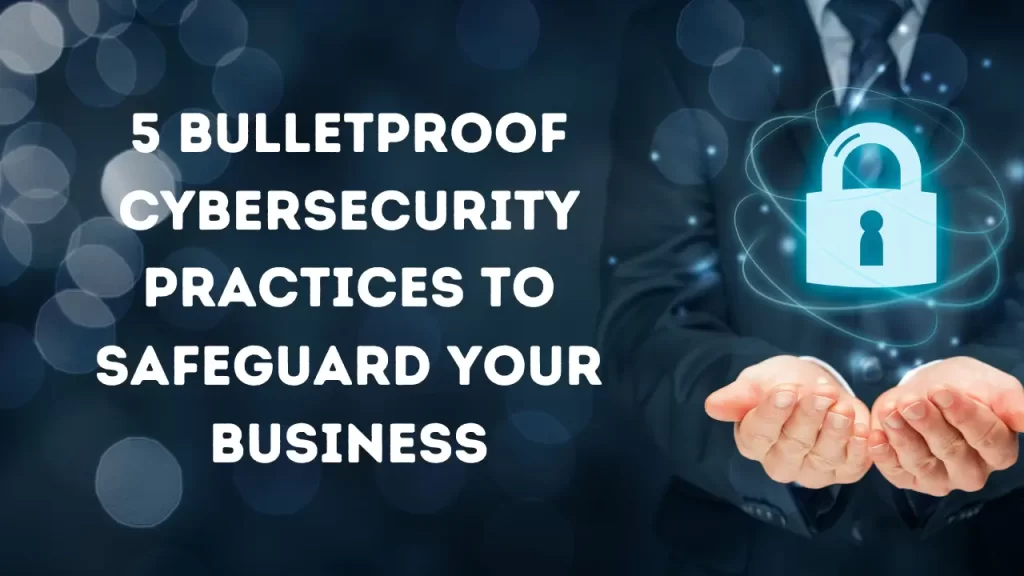Although Artificial Intelligence has changed the dynamics of the digital world, we are still facing massive possible threats when it comes to cybersecurity. Healthcare, business, finance, and all other industries are exposed to cyber threats. In simple terms, once you have data, you are exposed to several vulnerabilities within your system.
For this reason, software developers started fixing this threat during the software development process. However, the massive vulnerabilities and security breaches led the way for devsecops tools and other cybersecurity measures to be brought into the mix. These tools allow developers to integrate security practices in the entire software development life cycle (SDLC).
Business owners can’t afford to experience security breaches as it causes financial loss along with losing customer loyalty. The cybersecurity threats are rising to an alarming point, so much so, that cost of cybercrime is about to reach $8 trillion in 2023 and it is expected to cross $10.5 trillion by 2025.
Besides the recovery cost, stolen assets, and losing customer trust, you will also lose your brand’s reputation. So, here we have 5 foolproof cybersecurity practices that will prevent your business from possible security breaches and vulnerabilities.
1. Enable SSL Encryption:
The first step towards strengthening your website begins with enabling SSL encryption. This way you can lower your website’s vulnerability to cyber-attacks. SSL allows you to have encrypted connections between the browser and the server. To achieve this, you need to get SSL certification. Cyberattacks are so common that around 90% of IT professionals experience a security breach at some point. Hence, being SSL certified will save you from a lot of trouble down the road. With this certification, your website URL will change from HTTP to HTTPS. Additionally, you will see a padlock icon before your URL. Through this, you will get an additional security layer for your website.
2. Run Pen Tests:
You can easily trace back the steps that occur during cyber threats through a cyber-kill chain. You might have heard of this before. A cyber kill chain takes you from the reconnaissance stage to the ultimate goal of the attacker.
The first stage of a cyber-kill chain is reconnaissance. Usually in this stage, the cyber attacker obtains information from the victim through brute force attacks, email phishing, etc. To prevent such dangerous cyber-attacks, it’s best to run penetration tests also known as pen tests. These tests are simulations of possible cyber-attacks developed to analyze the strength of your cybersecurity.
You can run pen tests yourself, but it is better to get in touch with a third-party service provider to avoid any damage. With this, you can develop strict preventive measures for any cybersecurity situation.
3. Setting Robust Passwords:
If there is sensitive data on your website, then setting a weak password can be a potential threat. Therefore, a robust password is necessary to secure your website from breaches and attacks. You can easily work on your passwords by making them long and unique. It’s advised to have 14 different kinds of characters to strengthen the password. The difficulty of your password ensures better security for your data.
4. Implement Two-Factor Authentication:
Two-factor authentication or 2FA can be a game changer as it provides additional security to your systems. Through this, you can surely make things extra tricky for hackers. Besides the username and password, it requests you to verify your identity through a code verification that is usually sent to you via email, SMS, or phone call.
Now the majority of websites allow you to set a 2FA. For instance, Gmail gives you this option. In this way, it is validated that the account owner is the one trying to obtain access. Hence, securing the data more effectively.
5. Protect Your Wi-Fi Networks:
If your Wi-Fi network is not secure, it can easily be hacked, and again, one way to ensure protected Wi-Fi is to have a robust password. Also, share the password with a limited number of people who directly use it. Furthermore, changing your password regularly ensures better security. Moreover, passwords that are kept the same for a long-time are easier for hackers to crack.
Prevention is always better than paying the huge cost of security breaches. With these simple steps, you can bulletproof your business from cyberattacks. These measures may appear simple, but they can make a great change when it comes to defending your email, website, or any digital platform from outside attacks and ultimately, safeguarding you from financial losses in the long run.
